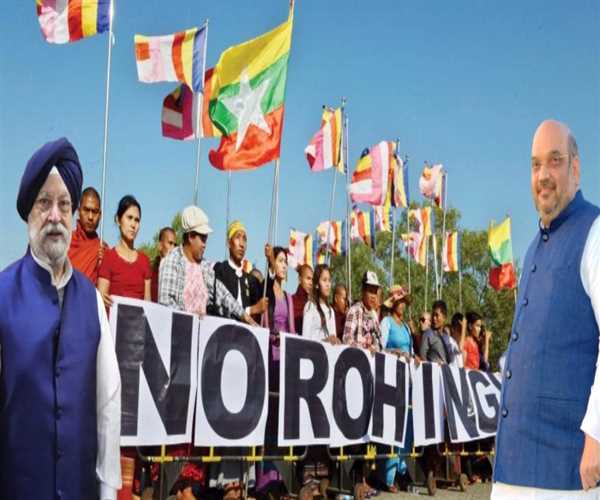The "Rohingyas and EWS Flats Controversy" in India: An Overview
The Rohingya refugees and the economically weaker sections (EWS) in India have been at the center of a recent controversy over the allocation of affordable housing. This controversy has sparked intense debates and discussions on various fronts, with some groups advocating for the rights of the refugees and others advocating for the rights of the EWS. This article will explore the key issues involved in this controversy and the reasons behind it.
What is the Rohingya Crisis?
The Rohingya are a Muslim minority from Myanmar who have faced widespread persecution and violence, leading to a large number of refugees fleeing to neighbouring countries, including India. The Indian government has faced criticism for its handling of the Rohingya refugee crisis, including allegations of human rights abuses and limited access to basic services such as healthcare and education.
Why is the Allocation of Affordable Housing Controversial?
The allocation of affordable housing to both the Rohingya refugees and the EWS has become a controversial issue in India, with some groups claiming that the refugees should not be eligible for such housing. They argue that the housing should be reserved exclusively for Indian citizens and that the government should instead focus on helping the EWS.
On the other hand, there are those who believe that the refugees should have access to affordable housing, as they are in dire need and face a difficult living situation in India. This group argues that providing housing to the refugees would improve their quality of life and also help to alleviate some of the social and economic tensions that have arisen from their presence in the country.
Key Arguments in the Controversy
Advocates for the Rohingya refugees argue that the refugees should be granted access to affordable housing as they are in dire need of it and face a difficult living situation in India. They also argue that providing housing to the refugees would help to alleviate some of the social and economic tensions that have arisen from their presence in the country.
On the other hand, those who are opposed to providing housing to the refugees argue that the government should prioritize helping the EWS, who are Indian citizens, over the refugees. They argue that the housing should be reserved exclusively for Indian citizens and that the government should focus its resources on helping the EWS instead.

Government Response to the Controversy
The Indian government has yet to respond to the controversy officially, and it is unclear what its stance will be. However, some reports have suggested that the government is considering a number of options to address the situation, including providing housing to the refugees and increasing support for the EWS.
Conclusion
The "Rohingyas and EWS Flats Controversy" highlights the complex challenges facing the Indian government in managing the refugee crisis, balancing the needs of different groups, and addressing the issues of affordable housing and economic inequality. While the controversy is unlikely to be resolved anytime soon, it is important for the government to find a solution that considers the needs and rights of all parties involved and advances the cause of human dignity and social justice.
In conclusion, the controversy over the allocation of affordable housing to both the Rohingya refugees and the EWS highlights the need for the Indian government to find a solution that balances the needs of different groups and advances the cause of human dignity and social justice. It is important for the government to consider the needs and rights of all parties involved and find a solution that promotes the common good and protects the rights of all citizens and refugees.